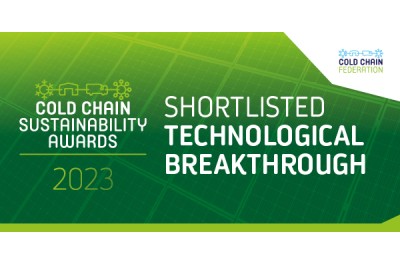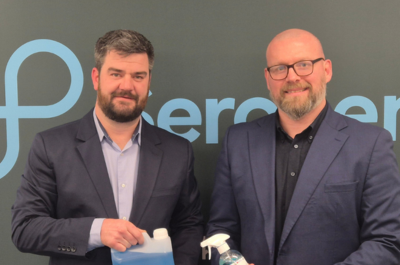Seymour Manufacturing International, the Chamber member company with its UK headquarters at Stafford Park in Telford, has been shortlisted for another award.
The company's celebrated Tempro thermal insulation product, and best-selling Cold Stop curtains, are in the running for the ‘Technological Breakthrough – Innovation of the Year’ prize for cold storage at the 2023 Cold Chain Sustainability Awards.
The awards recognise businesses and individuals who are ‘leading the way towards a more sustainable UK cold storage and temperature controlled transport sector’.
The winners will be announced after the Cold Chain Federation’s climate summit, being held in Warwick on March 15th.
The Technological Breakthrough category is about recognising a specific product or service which has either been introduced to the market or which has made a major breakthrough during the last year to drive demonstrable change in the carbon emissions from cold storage.
The organisers say: “The Technology Breakthrough category recognises a game changing innovation introduced over the last year which will lead to a widespread reduction in carbon emissions across the cold chain.
“The Innovation of the Year – Cold Storage award is for the product or service which will reduce emissions, either directly or from reducing energy demand in temperature-controlled storage.”
Seymour Manufacturing International has been saving energy and money for some of the world’s biggest and best-known businesses since the 1980s, and continues to be the market leader in design of thermal products.
The client list is a who’s who of blue-chip brands, including retailers such as Waitrose, Morrisons, ASDA, Sainsbury’s, Marks & Spencer, Co-op, and Lidl.
It also works with the NHS, the Ministry of Defence, and has become a leading thermal insulation supplier for the protection of food, chemicals, agricultural and home delivery products.
It’s all thanks to Tempro, SMI’s remarkable lightweight thermal insulation material which has been scientifically proven to cut energy loss by at least 25% in chillers, and an amazing 33% in freezers.
It was the first choice for intrepid explorer Sir Ranulph Fiennes when he headed off towards the South Pole, needing to protect his living quarters and portable laboratories from dangerous sub-zero temperatures.












Latest News